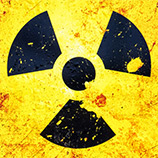 29 March 2018 - Representatives of over 30 Member States, experts and the United Nations actors, gathered last week in Vienna to discuss the importance of becoming a party to, and fully implementing, the international legal framework against nuclear terrorism.
29 March 2018 - Representatives of over 30 Member States, experts and the United Nations actors, gathered last week in Vienna to discuss the importance of becoming a party to, and fully implementing, the international legal framework against nuclear terrorism.
"Nuclear terrorism is one of the greatest threats to humanity. No efforts should be spared in our work to overcome this global challenge," said John Brandolino, Director of the Division for Treaty Affairs, recalling the words of UNODC Executive Director Yury Fedotov.
The International Convention for the Suppression of Acts of Nuclear Terrorism (ICSANT), the Convention on the Physical Protection of Nuclear Material (CPPNM) and its 2005 Amendment provide tools to ensure that there is no safe haven for those committing the acts that they establish as offences. However, these instruments could realise their full potential only with universal ratification since security is only as strong as the weakest link.
Also participating, Alexandre Bilodeau, chargé d'affairs of the Permanent Mission of Canada to the United Nations in Vienna, welcomed close cooperation between his country and UNODC in the prevention of nuclear terrorism. He emphasized the need to improve the level of participation so that no gaps in the security framework can be exploited.
Similarly, Maria Lorenzo Sobrado, Focal Point for Chemical, Biological and Nuclear Terrorism at UNODC, highlighted that "the Conventions provide a basis for the harmonization of criminalization provisions across jurisdictions, thus enhancing the framework for and facilitating international cooperation".
The event provided an opportunity for participants to understand the differences and synergies between ICSANT, CPPNM and its 2005 Amendment. Further, attendees analysed a case study on the implementation of these conventions, discussed national challenges, shared lessons learned, and learned about assistance offered by different organizations represented at the event.
Also participating were experts from Canada, the Netherlands, the International Atomic Energy Agency (IAEA), the United Nations Office for Disarmament Affairs (UNODA) as well as the Group of Experts of the Security Council Committee established pursuant to resolution 1540 (2004). The event was funded by the Government of Canada.